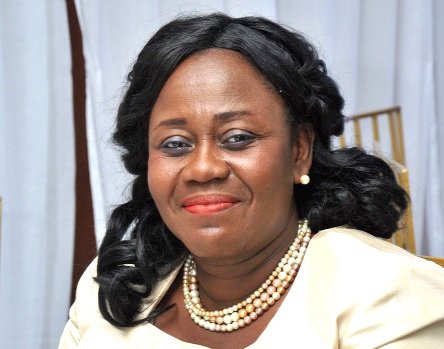Suspended Chief Justice Gertrude Araba Esaaba Sackey Torkornoo has warned that the ongoing process to remove her from office poses a serious threat to Ghana’s democratic institutions and constitutional governance.
Addressing the media on Wednesday, June 25, the Chief Justice described the removal proceedings under Article 146 as unconstitutional and deeply flawed, stating that if left unchallenged, the process could undermine the independence of the judiciary and other key constitutional bodies.
“This process will affect how all High Court Justices, Justices of the Court of Appeal, Supreme Court Justices and all Chief Justices that will be appointed in the future may be removed from office,” she said.
She noted that the framers of the 1992 Constitution placed special protections around certain public officers—including Judges, Commissioners of CHRAJ, the Auditor-General, and the Electoral Commission—so they could serve without fear or control from any authority.
“The framers of the Constitution identified that it is only when these public officials work without fear, control or the pleasure of influential people, that freedom and justice will reign in Ghana,” she stated.
According to Justice Torkornoo, the current proceedings break every rule on how justice is delivered in the country. She said no rules provided by law are being followed, and that she is being tried without being served with the actual petitions or the prima facie determination that forms the basis of the hearing.
“If this model of removal can be tried on the Chief Justice, it can be repeated with everyone,” she warned.
READ: My travel and per diem followed official policy – Chief Justice Torkornoo
The Chief Justice added that the inquiry is being conducted in secrecy, at a high-security facility historically linked to the abduction and murder of Judges in 1981, and that the location of the hearing appears designed to intimidate her and shield the process from public scrutiny.
She also raised concerns that the Committee has chosen to conduct the hearings not as an inquiry—as directed by Article 146(7)—but as civil litigation, which she said undermines the nature and purpose of the constitutional process.
Justice Torkornoo concluded her remarks by affirming that she would not resign or withdraw from the process, despite threats and pressure to do so, because doing so would legitimize an unlawful process and endanger the future of Ghana’s constitutional order.
“I cannot share the burden of those involved in designing and implementing this enterprise of pretending to use article 146 procedures to remove a Chief Justice through unknown and unlawful means, by keeping quiet about the violations of law, rules and due process,” she said.
Source: Ghana/Starrfm.com.gh/Emmanuel Mensah




